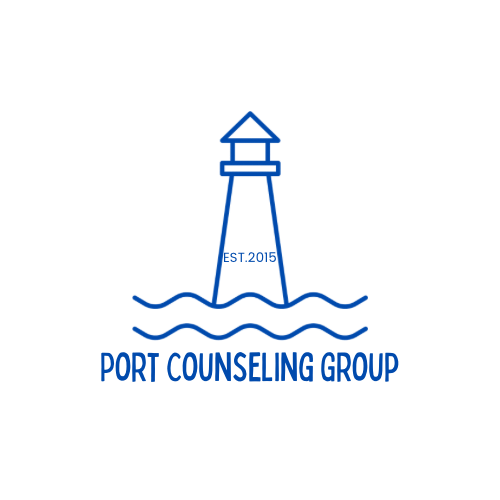Therapy For Divorce & Breakups
Our dedicated team of therapists specializes in helping individuals heal from the pain of divorce, separation, and breakups, empowering them to navigate through grief, rediscover their inner strength, and embark on a journey of personal growth and renewal. Whether you're contemplating the difficult decision to end a relationship or seeking support to cope with the aftermath of a breakup, we are here to provide you with the guidance, tools, and support you need to navigate through this challenging transition with resilience and grace.

the Impact of Divorce & Breakups
Ending a relationship, whether it be a marriage or dating relationship, can evoke a myriad of emotions and challenges. The decision to part ways is often accompanied by fears of loneliness, rejection, failure, and uncertainty about the future. The process of disentangling lives and emotions can be overwhelming and disorienting, leading to feelings of grief, guilt, anger, and shame. We specialize in helping those who are facing the difficult choice of ending a relationship get through the decision making process and healing from the losses associated with it.
Preventing Breakup: How Couples Therapy Helps:
-
Improving Communication
Couples therapy provides a safe space for partners to express their thoughts, feelings, and concerns openly and honestly. Our therapists will facilitate productive communication techniques, helping you listen to each other empathetically and communicate effectively without judgment or defensiveness.
-
Identifying and Addressing Core Issues
Through guided conversations and exercises, couples therapy helps uncover the root causes of relationship distress, whether it be unresolved conflicts, differing expectations, or unmet emotional needs. Our therapists will assist you in developing strategies to address these issues constructively and collaboratively.
-
Building Trust & Intimacy
Trust is the foundation of any healthy relationship, and couples therapy offers tools and techniques to repair trust breaches and cultivate emotional intimacy. Couples learn to rebuild trust through vulnerability, empathy, and consistent positive interactions, fostering a deeper connection and sense of security within the relationship.
-
Developing Conflict Resolution Skills
Conflict is inevitable in any relationship, but how couples manage and resolve conflicts can make all the difference. Couples therapy teaches partners effective conflict resolution skills, such as active listening, compromise, and problem-solving, empowering them to navigate disagreements constructively and without escalation.
-
Reigniting Romance & Connection
Over time, the spark of romance and connection may dim in a relationship. Couples therapy provides opportunities for partners to reconnect emotionally and reignite passion and romance through shared experiences, affectionate gestures, and intentional acts of love and appreciation.
When Couples Therapy Isn’t an Option
Whether your insurance won’t cover it or your partner is resistant in going, your relationship can still shift if couples counseling is just not in the cards for you. Individual therapy can be a valuable resource for individuals who are contemplating divorce or breakup, providing support, guidance, and a safe space for exploration and decision-making. Here are several ways in which individual therapy can help during this challenging time:

Signs It’s Time to End a Relationship
-
Persistent Unhappiness or Dissatisfaction
Feeling consistently unhappy or dissatisfied within a relationship can indicate underlying issues that are not being addressed or resolved. Despite efforts to improve the relationship, if feelings of discontent persist and significantly outweigh moments of happiness or fulfillment, it may be a sign that the relationship is no longer serving the emotional needs of both partners.
-
Lack of Trust & Respect
Trust and respect are foundational pillars of any healthy relationship. When trust is repeatedly broken or respect is consistently lacking, it erodes the foundation of the relationship, leading to feelings of insecurity, resentment, and emotional distance. Without trust and respect, it becomes challenging to maintain a loving and supportive connection.
-
Communication Breakdowns
Effective communication is vital for fostering understanding, empathy, and connection between partners. When communication breaks down or becomes characterized by frequent arguments, misunderstandings, or stonewalling, it hinders the ability to resolve conflicts, express needs, and nurture emotional intimacy. Without open and respectful communication, the relationship may stagnate or deteriorate over time.
-
Emotional or Physical Abuse
Any form of abuse, whether it be emotional, verbal, or physical, is unacceptable and detrimental to one's well-being. Abuse erodes self-esteem, undermines personal boundaries, and perpetuates cycles of fear and control within the relationship. Recognizing and prioritizing one's safety and emotional health is paramount, and seeking support to end the abusive relationship is crucial for healing and moving forward.
-
Incompatibility in Values or Life Goals
Partners may initially be drawn to each other by shared interests or physical attraction, but long-term compatibility often hinges on alignment in values, priorities, and life goals. When partners have fundamentally different beliefs, aspirations, or visions for the future, it can lead to recurring conflicts, feelings of resentment, and a sense of being at odds with each other's core identities. Recognizing and respecting these differences is essential, but if they persistently impede mutual growth and happiness, it may be a sign that the relationship is unsustainable.
-
Consistent Feelings of Neglect or Unfulfillment
Feeling consistently neglected, unappreciated, or emotionally unfulfilled in a relationship can lead to a sense of loneliness, disconnection, and resentment. Despite efforts to address these feelings with your partner, if they persistently go unacknowledged or unresolved, it may indicate a fundamental mismatch in emotional compatibility or the inability of the relationship to meet your needs for intimacy, support, and connection.

Recognizing the signs that it’s best to pursue divorce or breakup requires honest introspection and self-awareness. While every relationship encounters challenges, persistent patterns of unhappiness, dysfunction, or toxicity warrant careful consideration and may indicate that ending the relationship is the healthiest choice for personal growth and well-being.
Post-Breakup: How Couples Therapy Can Still Help
-
Closure & Resolution
Couples therapy can assist partners in processing their emotions, gaining closure, and finding resolution in the aftermath of a breakup. Our therapists provide a neutral and compassionate space for partners to express their feelings, reflect on the relationship, and say goodbye with dignity and respect.
-
Coparenting Support
For couples with children, co-parenting can present unique challenges post-breakup. Couples therapy can help parents develop a co-parenting plan that prioritizes the well-being of their children, fosters effective communication, and establishes boundaries and expectations for co-parenting responsibilities.
-
Healing & Moving Forward
Breaking up can trigger a range of emotions, including grief, anger, and loneliness. Couples therapy offers support and guidance to help individuals navigate the grieving process, heal emotional wounds, and embark on a journey of self-discovery and personal growth.
-
Learning & Growth
Even in the aftermath of a breakup, individuals can gain valuable insights and lessons from their past relationship experiences. Couples therapy encourages self-reflection and introspection, empowering individuals to identify patterns, learn from mistakes, and cultivate healthier relationships in the future.
How Therapy at PORT Works
-
Inquire
Use our online contact form and let us know which of our Therapists you would like to work with. We will promptly connect you to your preferred provider for your brief free phone consultation. We want to go the extra mile to make sure you feel comfortable from the start.
-
Get to the Root
Your therapy will likely start out with having sessions either weekly or biweekly. With your Therapist, you will get a better understanding of your presenting concerns and how they came about. Your therapist will also help you assess your level of coping and teach you additional strategies.
-
Do the Work
The bulk of your experience will be in doing the work, both in & out of sessions. You will work through implementing techniques to improve your mood and engagement in relationships in session, while completing tasks assigned by your therapist to further your progress.
-
Have Better Relationships
This is the point where you get to be #RelationshipGoals. You are having fewer therapy sessions and experiencing emotional healing from past relationship trauma. You are in a place where you are feeling more competent to handle whatever comes next.
FAQs on Divorce & Breakups
-
Recognizing when it's time to end a relationship can be challenging. Signs such as persistent unhappiness, lack of trust or respect, communication breakdowns, and emotional or physical abuse may indicate that the relationship is no longer healthy or fulfilling.
-
Ending a relationship can be emotionally and logistically complex. It may involve difficult conversations, legal considerations (such as division of assets or custody arrangements), and emotional adjustment. Therapy can provide support and guidance throughout this process.
-
Therapy offers a safe and supportive space to process emotions, gain clarity, and develop coping strategies. Therapists can provide validation, empathy, and practical tools to navigate through grief, loss, and transition with resilience and grace.
-
It is common to experience feelings of guilt, uncertainty, and ambivalence when contemplating the end of a relationship. Therapy can help individuals explore these emotions, understand their underlying causes, and gain clarity about their decision-making process.
-
Children may experience a range of emotions during a divorce or breakup, including sadness, confusion, and anxiety. Therapy can help parents navigate co-parenting challenges, communicate effectively with their children, and provide emotional support and stability during this transition.
-
Therapy can provide a supportive space for couples to explore the possibility of reconciliation, address underlying issues, and develop skills for rebuilding trust and intimacy. Therapists can guide couples through the process of healing and rebuilding their relationship if both parties are committed to change.
-
Healing from a breakup or divorce is a gradual process that varies for each individual. Factors such as the length of the relationship, the nature of the breakup, and personal resilience can influence the timeline of healing. Therapy can provide support and guidance as individuals navigate through grief, acceptance, and eventual renewal.
-
Rebuilding your life after a breakup or divorce involves self-discovery, self-care, and creating a new sense of purpose and direction. Therapy can help individuals explore their values, goals, and passions, develop resilience and coping strategies, and embrace new opportunities for growth and fulfillment.




